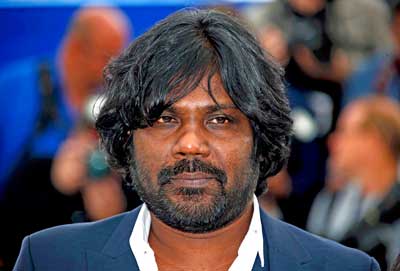Friday Feb 20, 2026
Friday Feb 20, 2026
Tuesday, 26 May 2015 01:53 - - {{hitsCtrl.values.hits}}
(NIE) Colombo: Jesuthasan Anthonythasan, the Tamil Tiger child soldier who attained international stardom when his film Dheepan bagged the Palme d’Or at Cannes this year, has well and truly abjured violence and separatism, which had marked his life in Sri Lanka.
“Though the Tamil Diaspora might want it, the Tamils in Sri Lanka are not interested in securing an independent Tamil Eelam or in adopting violence as their creed again,” Anthonythasan, now 47, told Express over phone from Paris.
Having authored two well-received novels Gorilla and Traitor on the blood-soaked Tamil militant era under the pen-name Shobasakthi, Anthonythasan has a deep understanding of the Tamil question.
“Admittedly, the guns are silent now, and people are going about their normal chores. But the basic issue of the political rights of the  Tamils is still not being addressed,” he observed.
Tamils is still not being addressed,” he observed.
“Tamils will have to struggle for autonomy, but without resorting to violence. The change of regime has created a conducive climate for a change of approach,” he said.
On Deepan, which is the first ever feature film on the plight of the Lankan Tamil refugees living overseas, Anthonythasan said it brings out starkly, the deprived and depraved lives of illegal immigrants in France.
“It also tells the clueless locals who we immigrants are, and what difficulties we go through.”
Asked about the challenges in the making of Dheepan, Anthonythasan said: “In the beginning, Director Jacques Audiard knew nothing of Sri Lanka’s war and the problems of the Tamil refugees. But he worked extremely hard to know the subject thoroughly. He would discuss minute details with us.”
However, Anthonythasan feared that language might pose a problem. He wondered if the festival would like a French film where 90% of the dialogues were in Tamil.
Dheepan is the story of the escape of a militant, a woman and a child from the war zone in North Lanka, disguised as a “family”, and their poverty-stricken and violent life in a crime-ridden Paris slum. Andrew Pulver of The Guardian described the film as an “immensely powerful work.”